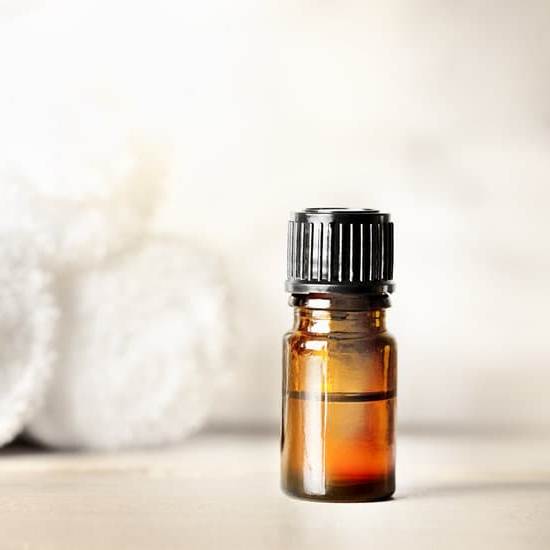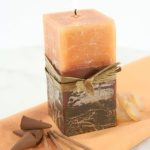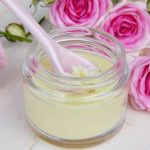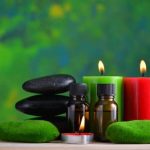Aromatherapy, often considered a complementary alternative medicine, has gained popularity in recent years for its holistic approach to healing. This practice involves the use of essential oils extracted from plants to promote physical, emotional, and mental well-being. Aromatherapy is rooted in ancient healing traditions and has evolved into a widely practiced therapy that complements modern medical treatments.
The history of aromatherapy dates back centuries, with its origins found in various cultures around the world. Ancient civilizations such as the Egyptians, Greeks, Romans, and Chinese used aromatic plant oils for medicinal purposes, spiritual rituals, and enhancing overall wellness. This rich history highlights the longstanding belief in the therapeutic benefits of natural scents on the human body and mind.
Essential oils are at the core of aromatherapy practices, each possessing unique healing properties and aromatic profiles. These concentrated plant extracts are obtained through steam distillation or cold pressing methods and can be used in various ways such as diffusion, massage, baths, or inhalation. The diverse range of essential oils allows for personalized blends to target specific health concerns or promote general well-being.
History of Aromatherapy and Its Roots in Ancient Healing Traditions
Aromatherapy is a healing practice that has deep roots in ancient traditions, dating back thousands of years. The use of aromatic plants and essential oils for therapeutic purposes can be traced to ancient civilizations such as the Egyptians, Greeks, Romans, and Chinese. These cultures believed in the power of scents to heal the body, mind, and spirit.
Ancient Egypt
One of the earliest records of aromatherapy can be found in ancient Egypt, where aromatic oils and resins were used for medicinal, religious, and cosmetic purposes. The Egyptians were known to extract oils from plants like frankincense, myrrh, and cedarwood for embalming rituals, as well as for treating various health conditions. They also used fragrant oils in perfumes and cosmetics.
Ancient Greece and Rome
In ancient Greece and Rome, aromatic herbs were commonly used for their medicinal properties. Greek physician Hippocrates believed in the healing power of aromatics and prescribed them for a wide range of ailments. Roman physician Galen also advocated for the use of essential oils in his medical practice. Aromatic plants like lavender, rosemary, and peppermint were often used to treat digestive issues, inflammation, pain relief, and respiratory problems.
Traditional Chinese Medicine
Traditional Chinese medicine also incorporates aromatherapy as part of its holistic approach to healthcare. Essential oils are often used in herbal formulas, acupuncture treatments, massage therapies, and moxibustion techniques. In Chinese medicine, different scents are believed to correspond with specific meridians in the body to help restore balance and promote healing. The rich history of aromatherapy across various ancient cultures highlights its longstanding tradition as a complementary alternative medicine practice with proven benefits for overall well-being.
Aromatherapy Essentials
Aromatherapy is a practice that involves using essential oils extracted from plants to promote physical, emotional, and mental well-being. These essential oils are highly concentrated plant extracts that contain various beneficial compounds. Each essential oil has its own unique aroma and healing properties, making them versatile tools in aromatherapy practices.
To truly understand the power of aromatherapy, it is important to grasp the properties of essential oils commonly used in this practice. Here are some popular essential oils and their healing properties:
- Lavender: Known for its calming and soothing effects, lavender essential oil is often used to promote relaxation, reduce stress and anxiety, and improve sleep quality.
- Peppermint: With its invigorating scent, peppermint essential oil can help alleviate headaches, improve focus and concentration, relieve nausea, and soothe muscle aches.
- Eucalyptus: This refreshing essential oil is commonly used to clear the sinuses, ease respiratory issues, reduce inflammation, and boost energy levels due to its antibacterial and decongestant properties.
Understanding the healing properties of essential oils is key to effectively incorporating aromatherapy into your wellness routine. By harnessing the power of these natural plant extracts through diffusion, massage, baths, or inhalation techniques, you can experience the holistic benefits that aromatherapy has to offer. Incorporating aromatherapy into your daily life can be a simple yet powerful way to enhance your overall well-being.
The Science Behind Aromatherapy
Aromatherapy, often used as a holistic healing practice, involves the use of essential oils extracted from plants to promote physical and emotional well-being. One of the intriguing aspects of aromatherapy is how scents can impact the brain and body.
The olfactory system, responsible for our sense of smell, plays a crucial role in transmitting signals to the brain that can influence various physiological responses. Understanding the science behind how aromatherapy works sheds light on its effectiveness as a complementary alternative medicine.
Neurological Effects of Aromatherapy
Research has shown that when inhaled, aromatic compounds from essential oils can stimulate the olfactory receptors in the nose. These receptors then send signals to the limbic system, which is known as the emotional center of the brain.
This activation can lead to the release of neurotransmitters like serotonin and endorphins, which are associated with feelings of happiness and relaxation. By triggering these responses, aromatherapy has been found to help reduce stress and anxiety levels, improve mood, and even alleviate symptoms of depression in some individuals.
Physiological Responses to Aromatherapy
In addition to its neurological effects, aromatherapy also exerts influence on various physiological processes within the body. For example, certain essential oils have been shown to possess antimicrobial properties that can help boost the immune system and fight off infections. Others have analgesic properties that may help alleviate pain or reduce inflammation.
Inhalation or topical application of specific essential oils may also have a direct impact on heart rate, blood pressure, and respiratory function. These diverse physiological responses contribute to the overall therapeutic benefits of aromatherapy as a complementary alternative medicine option.
As ongoing research continues to explore the intricate ways in which scents interact with our brains and bodies, it becomes increasingly evident that aromatherapy offers not only a pleasant sensory experience but also tangible health benefits. By delving deeper into the science behind aromatherapy and understanding its impact on both neurological and physiological levels, we gain valuable insights into why this ancient healing practice is gaining recognition as an effective complementary alternative medicine approach in modern healthcare settings.
Aromatherapy Techniques
Aromatherapy utilizes various techniques to harness the healing properties of essential oils, promoting physical and emotional well-being. Here are some popular methods used in aromatherapy:
1. Diffusion: One of the most common ways to enjoy the benefits of essential oils is through diffusion. This method involves dispersing aromatic molecules into the air using devices like diffusers, allowing you to breathe in the therapeutic scents. Diffusing essential oils can help purify the air, create a calming atmosphere, and alleviate stress.
2. Massage: Aromatherapy massage combines the therapeutic benefits of touch with the healing properties of essential oils. During a massage session, diluted essential oils are applied to the skin through gentle strokes and pressure, promoting relaxation, improving circulation, and relieving muscle tension. The absorption of essential oils through the skin enhances their effects on both body and mind.
3. Bath: Adding a few drops of essential oils to bathwater is a luxurious way to unwind and reap the benefits of aromatherapy. Bathing in aromatic water can relax muscles, soothe aches and pains, alleviate stress, and enhance mood. Popular choices for aromatherapy baths include lavender for relaxation, eucalyptus for respiratory support, and citrus oils for an invigorating boost.
4. Inhalation: Inhaling the aroma of essential oils directly from the bottle or by using a personal inhaler is another effective way to experience their therapeutic effects. The olfactory system plays a significant role in how scents influence mood, emotions, and physiological responses. Aromatherapy inhalation can provide quick relief from headaches, nausea, anxiety, or congestion.
Whether you choose diffusion, massage, bath soaks or inhalation techniques; incorporating aromatherapy into your daily routine can offer numerous benefits for your overall well-being. As part of holistic health practices,is aromatherapy a complementary alternative medicine that supports conventional treatments or self-care regimens. Experiment with different methods to find what works best for you and enjoy the natural healing power of essential oils in your life.
Aromatherapy Benefits
Aromatherapy has gained significant attention for its potential benefits in stress relief, pain management, improved sleep, and mood enhancement. Many people turn to aromatherapy as a complementary alternative medicine to conventional treatments due to its natural and holistic approach to healing. Essential oils used in aromatherapy have been studied for their therapeutic properties, which are believed to positively impact both the mind and body.
One of the key benefits of aromatherapy is stress relief. Certain essential oils like lavender, chamomile, and rose are known for their calming effects, helping to reduce feelings of anxiety and promote relaxation. Inhaling these fragrances through methods like diffusion or inhalation can create a sense of peace and tranquility in both the physical and emotional state of an individual.
In terms of pain management, some essential oils possess analgesic properties that can alleviate various types of discomfort, such as headaches, muscle aches, or joint pain. Oils like peppermint, eucalyptus, and ginger are commonly used in massage blends or topical applications for their ability to reduce inflammation and provide relief from minor pains. Incorporating aromatherapy techniques into a pain management regimen can offer a natural and potentially effective way to address discomfort without relying solely on pharmaceuticals.
| Aromatherapy Benefits | Key Information |
|---|---|
| Stress Relief | Calming essential oils like lavender can reduce anxiety levels. |
| Pain Management | Analgesic properties of oils like peppermint help alleviate headaches and muscle aches. |
| Improved Sleep | Sleep-inducing oils such as chamomile promote relaxation for a better night’s rest. |
Aromatherapy in Modern Medicine
Aromatherapy has gained recognition in modern medicine as an integrative approach to healthcare, finding its way into hospitals, clinics, and wellness centers around the world. With its roots deeply entrenched in ancient healing traditions, aromatherapy is now being incorporated into mainstream medical practices to complement conventional treatments. The use of essential oils extracted from plants as a complementary alternative medicine is gaining popularity due to its holistic approach to promoting physical, emotional, and mental well-being.
One of the primary reasons why aromatherapy is being integrated into various healthcare settings is its ability to aid in stress relief for patients. Many hospitals now offer aromatherapy sessions for individuals undergoing medical procedures or experiencing high levels of anxiety. The calming scents of essential oils such as lavender or chamomile can help reduce stress and promote relaxation, creating a more soothing environment for patients during their hospital stay.
In addition to stress relief, aromatherapy is also being utilized in clinics and wellness centers for pain management. Essential oils like eucalyptus and peppermint have analgesic properties that can be beneficial for alleviating headaches, muscle aches, and other types of discomfort.
By incorporating aromatherapy techniques such as massage or inhalation therapy into treatment plans, healthcare providers are able to offer natural pain relief options to their patients. This integration of aromatherapy into modern medicine not only enhances the overall patient experience but also highlights the growing acceptance of complementary alternative therapies in healthcare settings.
| Aromatherapy Benefits | Healthcare Settings |
|---|---|
| Stress Relief | Hospitals |
| Pain Management | Clinics |
Evidence-Based Research on Aromatherapy
Aromatherapy has gained popularity in recent years as a holistic healing practice, but does it have the scientific backing to support its claims? Research studies and clinical trials have delved into the efficacy of aromatherapy in treating various ailments and promoting overall well-being. By examining these studies, we can better understand the potential benefits and limitations of incorporating aromatherapy into healthcare practices.
Several studies have looked at the impact of essential oils on the body and mind. For example, a study published in Complementary Therapies in Clinical Practice found that inhaling lavender essential oil reduced anxiety levels in patients undergoing medical procedures.
Another study published in Pain Management Nursing reported that inhaling a blend of essential oils helped reduce pain levels in individuals with chronic pain. These findings suggest that essential oils used in aromatherapy can have tangible effects on mood and physical sensations.
Clinical trials have also provided valuable insights into the effectiveness of aromatherapy. A randomized controlled trial published in Evidence-Based Complementary and Alternative Medicine showed that using a specific blend of essential oils resulted in improved sleep quality for elderly individuals with dementia.
Similarly, a meta-analysis published in the Journal of Clinical Oncology concluded that aromatherapy interventions were effective in reducing chemotherapy-induced nausea and vomiting. These findings highlight the potential benefits of integrating aromatherapy into traditional medical treatments for various health conditions.
Overall, while more research is needed to fully understand the mechanisms behind aromatherapy’s effects, existing evidence suggests that it can be a valuable complementary alternative medicine for promoting health and well-being. By continuing to explore its potential through rigorous scientific research, we can further validate aromatherapy as a legitimate healing practice with significant benefits for individuals seeking holistic healthcare options.
Aromatherapy as a Complementary Alternative Medicine
Aromatherapy is considered a complementary alternative medicine that utilizes essential oils extracted from plants to promote physical, psychological, and emotional well-being. Many proponents of aromatherapy believe that the use of these essential oils can help in reducing stress, managing pain, improving sleep quality, and enhancing mood. By incorporating aromatherapy into traditional medical treatments, individuals may experience a holistic approach to healing that addresses both the mind and body.
One of the key benefits of using aromatherapy as a complementary alternative medicine is its ability to support conventional medical treatments. For instance, cancer patients undergoing chemotherapy often use aromatherapy to alleviate symptoms such as nausea and fatigue. The calming properties of lavender or peppermint essential oils can provide relief and improve their overall quality of life during treatment. Additionally, aromatherapy can be used alongside other therapies like massage or acupuncture to enhance the healing process.
However, it is important to note that while aromatherapy can offer many benefits, there are also some drawbacks to consider. One potential concern is the lack of regulation in the industry, which may lead to inconsistent quality among essential oil products.
Furthermore, not all individuals may respond positively to aromatherapy due to allergies or sensitivities to certain scents. It is essential for individuals considering aromatherapy as part of their healthcare regimen to consult with a qualified healthcare provider and experienced aromatherapist before starting treatment.
Conclusion
In conclusion, it is evident that aromatherapy is a valuable and effective healing practice that has been used for centuries in various cultures around the world. With its roots deeply embedded in ancient traditions, aromatherapy continues to gain recognition and acceptance in modern medicine as a complementary alternative therapy. The essential oils utilized in aromatherapy are known for their therapeutic properties, offering a natural and holistic approach to improving overall well-being.
The science behind aromatherapy highlights the significant impact scents can have on the brain and body, influencing emotions, mood, and even physiological responses. By understanding the benefits of diffusion, massage, baths, and inhalation techniques, individuals can harness the power of aromatherapy to manage stress, alleviate pain, enhance sleep quality, and uplift their spirits. Moreover, the integration of aromatherapy into hospitals, clinics, and wellness centers reflects its growing importance in enhancing patient care and promoting healing.
While evidence-based research on aromatherapy continues to expand, more studies are needed to fully explore its potential benefits and drawbacks. As we embrace aromatherapy as a complementary alternative medicine within the healthcare system, it is essential to establish guidelines for its use and ensure that practitioners are properly trained in its application. Ultimately, incorporating aromatherapy into our daily lives can offer a natural and gentle way to support our health and well-being on both physical and emotional levels.
Frequently Asked Questions
Is Aromatherapy Complementary or Alternative?
Aromatherapy is considered both complementary and alternative. It can complement traditional medical treatments by promoting relaxation and overall well-being, but it can also be used as an alternative approach to address certain health concerns.
What Type of Medicine Is Aromatherapy?
Aromatherapy is classified as a form of holistic medicine. It focuses on using essential oils extracted from plants to promote physical, emotional, and mental health. By harnessing the natural healing properties of these oils, aromatherapy aims to restore balance in the body.
What Is a Form of Alternative Medicine Involving Essential Oils?
One popular form of alternative medicine involving essential oils is called reflexology. This practice involves applying pressure to specific points on the feet, hands, or ears that are believed to correspond with other areas of the body. Essential oils may be used during reflexology sessions to enhance therapeutic benefits and promote relaxation.

Are you looking for a natural way to improve your health and wellbeing?
If so, aromatherapy may be the answer for you.





